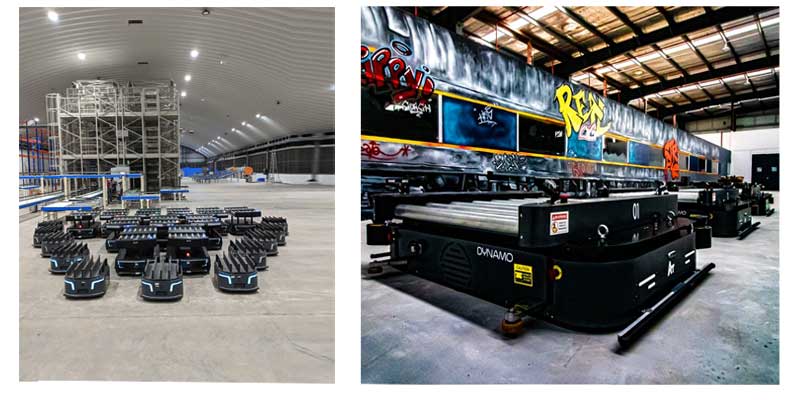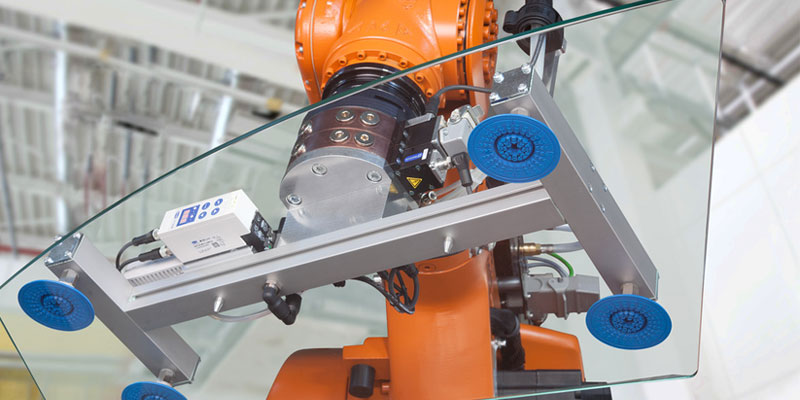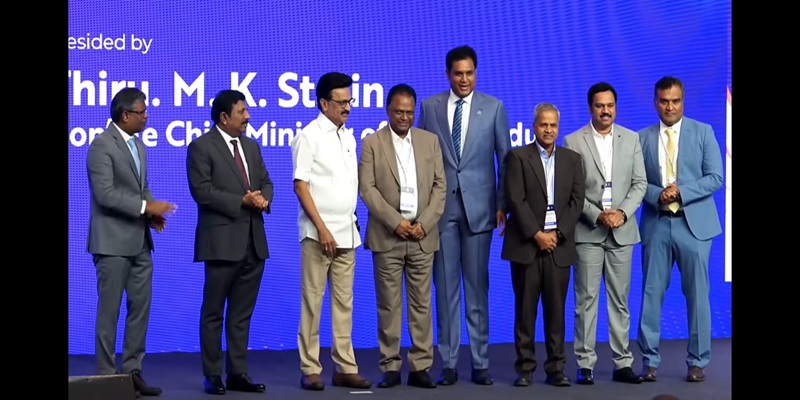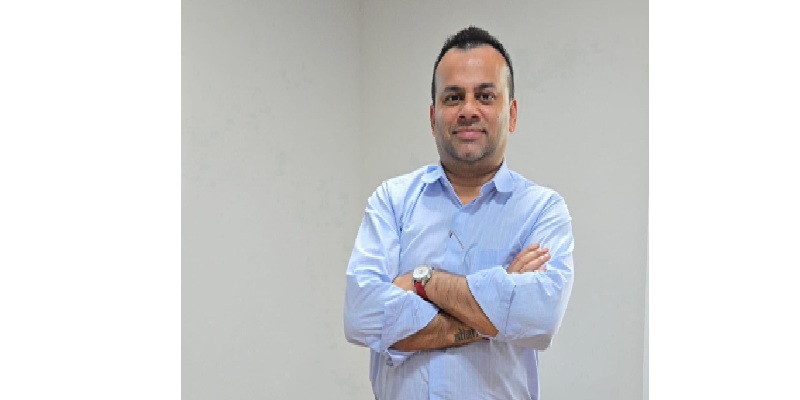Schedule a Call Back
Role of modern technologies and automation in manufacturing
 Articles
Articles- Jan 16,24

The manufacturing industry has undergone a profound transformation, evolving from manual craftsmanship to a modern era dominated by technology and automation. This shift has not only revolutionised production methods but has also unlocked efficiencies and possibilities once deemed unattainable.
Traditionally, goods were crafted by skilled individuals using basic tools. Today, manufacturing is characterised by the seamless integration of machines and automation technologies into the production process. Automation, from routine assembly tasks to complex operations like cutting and welding, has become a cornerstone of modern manufacturing.
The past decade has witnessed remarkable technological advancements in manufacturing, with artificial intelligence, machine learning, robotics, and automation enhancing quality, resilience, and efficiency. What was once optional has now become imperative for companies aiming to stay competitive in the 21st century.
Automation, in its various forms, covers a broad spectrum. From simple machines handling repetitive tasks to advanced robotics and artificial intelligence managing complex operations with minimal human intervention, the benefits are manifold. These include increased throughput, improved accuracy, reduced labour costs, enhanced safety, and heightened customer satisfaction.
Trends such as increased technology integration, the rise of artificial intelligence, and the use of 'smart' tools, as highlighted in Deloitte's 2023 Manufacturing Report*, are poised to bring transformative changes that will shape and bolster the manufacturing sector further.
Manufacturers need to be agile not only in adopting the latest technologies but also in fostering a culture that embraces change. The pace of technological advancement demands an organisational mindset that sees challenges as opportunities and disruption as a chance to innovate. It involves rethinking entire workflows and business models in addition to automating existing operations.
The evolution of manufacturing lies in seamlessly integrating human intelligence with the capabilities of modern technologies and automation. This collaborative partnership ensures that machines handle repetitive or intricate tasks with precision, while human creativity remains at the forefront, guiding overarching strategy and decision-making processes.
Understanding the intricacies and possibilities within manufacturing is crucial for maintaining a competitive edge in the global market. Automation has transcended being a mere choice; it is now an integral part of modern manufacturing. The upcoming years hold great promise, with continued integration of automation and technological advancements poised to make the manufacturing sector more productive, efficient, and innovative.
Automation is about enhancing human talents and opening up new opportunities, not just substituting machines for human labour. In tasks requiring cognitive abilities, robots can now equal or surpass humans through a combination of artificial intelligence and machine learning. This is a story about the growth of skills, allowing humans to concentrate on higher-order thinking, creativity, and problem-solving while assigning regular and repetitive activities to machines.
In realising the importance of automation, it is clear that technological integration is not only necessary but also a strategic requirement for businesses looking to prosper in the changing business environment. The long-term effects of automation are far-reaching, changing the nature of work, business structure, and economic growth.
During this shift, the roles of governments and policymakers become pivotal. Cooperation between public and commercial agencies is essential to ensure that the benefits of automation reach everyone and that no one is left out in this technological revolution.
While automation promises increased efficiency and productivity, it also raises ethical considerations. The responsible development and deployment of AI, robotics, and automation demand careful scrutiny. Addressing challenges, from job displacement to bias in algorithms, requires a collective effort from industry, academia, and policymakers.
It's not just about robots taking over; it's about people and machines collaborating to reach unprecedented levels of creativity and productivity. As we enter this new era, automation must be viewed as a catalyst for social transformation as much as a tool for monetary savings. The next chapter in manufacturing is a story of collaboration, adaptability, and the limitless possibilities that arise when human intelligence converges with the capabilities of modern technologies.
The impact of automation extends beyond the manufacturing floors, influencing education and prompting a shift in the skills prioritised for the future workforce. The workforce must possess a combination of critical thinking, adaptability, and technical literacy. Continuous learning becomes crucial as technological developments unfold.
The manufacturing industry has undergone a monumental shift towards automation and technological integration. The evolution from manual craftsmanship to a high-tech landscape signifies not just progress but a paradigm shift in how we perceive and approach manufacturing. The future holds great promise, with the synergy between human intelligence and technological capabilities paving the way for unprecedented levels of efficiency, creativity, and productivity. As we navigate this transformative journey, it is crucial for businesses, policymakers, and society at large to collaboratively embrace and steer the course of automation, ensuring its responsible and inclusive deployment for the betterment of all.
About the author
Bharanidharan S, Chief Manager of Software at Addverb, is a dynamic supply chain professional with 13 years of experience and operational expertise in automated paint manufacturing. With a background in computer science and a postgraduate degree in industrial engineering, he has excelled in roles at Asian Paints, driving manufacturing analytics, operational excellence, and process reliability. Currently leading software integration at Addverb, Bharanidharan is recognised for his strategic thinking, analytics prowess, and leadership in implementing cutting-edge solutions for complex supply chain challenges.
*https://www.deloitte.com/global/en/Industries/industrial-construction/analysis/gx-manufacturing-industry-outlook.html
Related Stories

Honeywell Launches Hybrid Heating to Cut Industrial Energy Costs and Emissions
Honeywell’s Hybrid Heating Solution enables manufacturers to switch between gas and electric heat in real time, helping optimise energy costs, cut emissions and support the energy transition.
Read more
Air-Saving Vacuum Ejectors Cut Energy Use by Up to 90% in Automotive Plants
Air-saving vacuum ejectors are helping Indian automotive manufacturers reduce energy costs, cut carbon emissions and achieve rapid ROI while ensuring reliable, zero-defect production, shares Rajesh ..
Read more
India is at a pivotal ‘Make in India’ inflection point: Manoj Patil
In this interview, Manoj Patil, Promoter and Managing Director, Patil Automation Limited, outlines its growth journey, capacity expansion, acquisitions, design-led approach, market challenges, and t..
Read moreRelated Products

Fanless Industrial Pc for Smart Manufacturing
CONTEC Launches BX-M4600 Series - Fanless Industrial PC for Smart Manufacturing.














